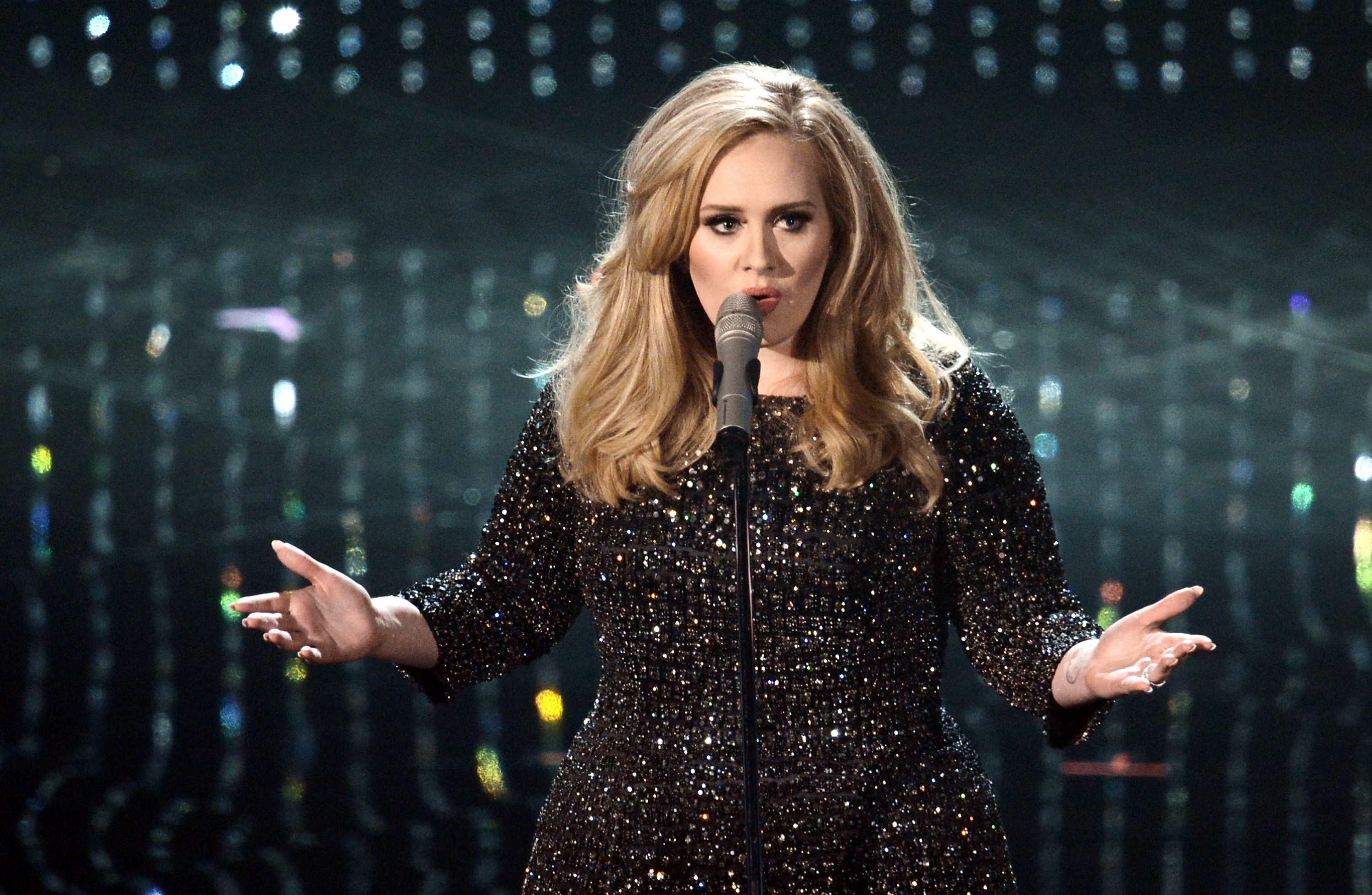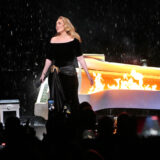Release Date: November 22, 2015
Label: XL
In her first proper interview in over four years, the now 27-year-old Adele Adkins recently told a journalist from i-D, “Life is so much easier when you don’t hoard your past.” It’s a fairly potent statement coming from someone who has essentially built her stadium-sized career out of doing that very thing. Over the course of three albums Adele, the gazillion-selling British phenomenon, has proven herself to be the queen of romantic rumination — dissecting, articulating, and gloriously amplifying her own heartbreak in ways that, quite literally, make the whole world weep. At the time of the interview, the suggestion that her new album, the just-released 25, might shake off some of her melancholy and melodrama was an intriguing one. No longer heartbroken and now happily familied, what might a forward-looking and seemingly content Adele sing about?
As it turns out, the results are pretty much exactly the same. The subject matter might have shifted slightly, but Adele is still as cinematically maudlin as ever. Having reportedly shelved a record of songs about motherhood she deemed too boring and choosing to wisely sidestep focusing on heartbreak narratives now that she no longer is, 25 still finds Adele looking mostly backwards. It’s an album permeated by bittersweet nostalgia and obsessed with the fleeting sweetness of youth — subjects that are, to be fair, relatable to almost all conscious and self-aware human beings. Still, it’s a bit jarring to hear someone who has yet to reach their 30th birthday sing, “We both know we ain’t kids no more” to a presumably also twentysomething ex-lover and then proceed to gaze back upon her youth as if she were doing so from the window of the world’s most elegant retirement home. Even for someone who has built a career on the back of being a refreshingly old-school entertainer — a nearly peerless vocalist that needs only the power of her remarkable voice to blow the f**king house down — the relentless nostalgia fueling 25 can feel wearying. When she sings, “Everybody tells me that it’s ‘bout time that I moved on / And I need to learn to lighten up and learn how to be young” on “River Lea,” one can’t help but wish she’d listen to their advice.
That is not to say that 25 is without its charms. In fact, you’d be hard-pressed to find a more well-considered and commercially savvy release this year. While the album’s global success was already a foregone conclusion before it was even released (Adele being one of the few artists on Earth currently capable of generating so much attention), 25 still plays things remarkably safe. Adele has a hand in writing every one of the 11 tracks here, and she brings in collaborators that are both expected (Max Martin and Shellback, Ryan Tedder, Paul Epworth, Danger Mouse) and somewhat less so (Tobias Jesso Jr., Bruno Mars) to deliver a slick but not terribly surprising set of songs that will no doubt go on to soundtrack much of our waking lives for the next couple of years.
When it works best, as on the now globally ubiquitous “Hello” or the show-stopping “All I Ask” (featuring a rending, diva-appropriate performance for the ages), 25 delivers the kind of timeless vibes people have come to expect from Adele, even though the first-person narratives in her songs often still feel oddly generic. As anyone who has ever interviewed her (or witnessed her recent one-night only engagement at New York’s Radio City Music Hall) can attest, Adele is a firecracker of a personality: funny, sarcastic, and fantastically charming. It’s perplexing that her songs so rarely reflect this part of her, largely eschewing any sense of fun in favor of a grandiose seriousness. Only on the record’s second track, “Send My Love (To Your New Lover),” a cheeky pop side-eye that provides one of the records few resoundingly upbeat moments, do we catch a glimpse of Adele’s sense of humor.
Instead, you get beautifully rendered songs about regret in which Adele mourns the passing of her still fairly recent youth. The apex of such feelings unfolds in “A Million Years Ago,” a glorious bummer in which she laments: “I miss the air, I miss my friends, I miss my mother / I miss it when life was a party to be thrown, but that was a million years ago.” Adele has clearly mastered the art of articulating melancholy, but damn. At this point it might be a bigger creative risk to actually hear her try and have a good time.
There’s no question that Adele is a both a rare and great talent; her ascendency to global pop domination is both warranted and inspiring — proof that sometimes pure talent can truly win out in the end. Still, it would be a shame if her name simply became shorthand for one singular aesthetic (Sade is the only artist who is legit allowed to get away with that). Adele and her collaborators clearly seem to understand what the world wants from her — giant, tear-out-your-heart (and maybe your hair) songs that provide the same kind of sobby emotional wallop of, say, watching The Fault in Our Stars while eating a tub of ice cream and looking through old high-school yearbooks. But her talents deserve better. Too often the tracks on 25 simply feel like sentiments dressed up as songs. “When We Were Young” and “Love in the Dark” offer the kind of mawkish, overcooked melodrama that one imagines Adele could perform in her sleep.
What’s more exciting is to actually feel her stepping into the emotional present, as she finally does on the album’s closer, “Sweetest Devotion.” “I wasn’t ready then, I’m ready now,” she sings, just before her voice soars into a chorus so sweepingly huge it’s hard to imagine anyone but her with the ability to sing it. It’s one of the record’s most genuinely openhearted moments, bursting with an optimism that one hopes she’ll start singing about more.





